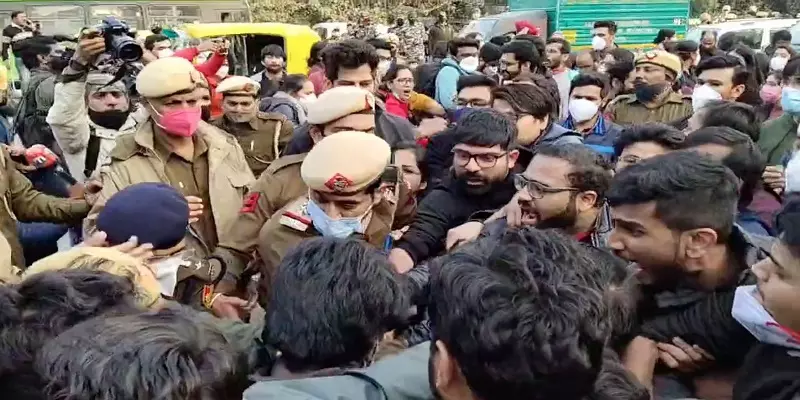
Explained: Why junior doctors are protesting so hard
A long-drawn-out Supreme Court case on counselling for NEET-PG courses is causing the ire; the handling of the situation has not helped

A protest by junior doctors in Delhi has entered Day 12, with no end in sight. The strike is reported to have hit hard day-to-day operations at hospitals such as Safdarjung, Ram Manohar Lohia and Lady Hardinge, as well as some Delhi government-run hospitals.
The situation is particularly worrisome because COVID cases are on the rise again. Delhi, which has declared a yellow alert on COVID, needs to be fully prepared for a tough situation, considering the hardship the city’s residents, hospitals and medical professionals bore during the previous two waves of the pandemic. The capital is in no position to have thousands of doctors not present in its wards, tending to patients.
What are junior doctors on the streets?
Counselling for admissions to post-graduate medical courses under the National Eligibility cum Entrance Test (NEET-PG) has remained suspended for months together due to a pending case in the Supreme Court. The case revolves around reservation of seats under the Economically Weaker Sections (EWS) in NEET-PG All-India Quota.
Also read: On the spot: What really triggered violence at Kitex labour camp in Kerala?
Petitions have been filed challenging a July 29 notification of the Medical Counselling Committee that provided a 10% quota to EWS. The criterion for EWS was fixed at ₹8 lakh annual income, which the Supreme Court found fault with. It said there appears to be no justification for that number, that for both EWS and OBC (Other Backward Class) the ceiling is ₹8 lakh and that makes little sense, since the latter are also socially and educationally backward.
At the latest hearing, on November 25, the Centre said it would revisit the income ceiling matter and requested four weeks’ time. It further assured the court that counselling would be suspended till pending petitions on the issue were resolved. The court then listed the matter for next hearing on January 6, 2022.
The net result, the junior doctors point out, is that their higher education is being jeopardised. Much time has been lost in the legal wrangle, and even counselling dates have not been set, leave alone the courses started. As is, the schedule has been delayed due to COVID — normally, NEET counselling is held every March. So, they now want the process to be expedited.
How has the situation been handled?
The government has been trying to address the doctors’ concerns. However, there were some violent incidents on Monday as the protesting doctors got into skirmishes with Delhi police, who were deployed to maintain law and order. Both sides claimed injuries.
On Tuesday, Union Health Minister Mansukh Mandaviya urged the doctors to end the strike in public interest. Representatives of the Federation of Resident Doctors’ Association (FORDA) met Mandaviya but later said the Minister’s “response was not satisfactory”. The Centre says it can only wait for the next hearing to take place, since the matter is now in the courts.
Parallels have been drawn between the ongoing protest by the junior doctors and the year-long agitation by farmers that ended only last month. The medical fraternity has expressed hope that it is resolved at the earliest, with minimal inconvenience to lakhs of patients.

